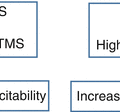© Springer International Publishing AG 2018
Stefano Masiero and Ugo Carraro (eds.)Rehabilitation Medicine for Elderly PatientsPractical Issues in Geriatricshttps://doi.org/10.1007/978-3-319-57406-6_5757. Long-Term Care for Older People in England
(1)
Personal Social Services Research Unit, London School of Economics and Political Science, London, UK
57.1 Introduction
Long-term care is crucial for the well-being of the rising numbers of older people with personal care needs and younger people with disabilities. Despite its importance, there is no single internationally agreed definition of long-term care. In the UK, the term long-term care, or care and support, tends to be used to refer collectively to a range of health, social care, supported housing, disability benefit and other services which help disabled younger and older people live an independent life. The emphasis is generally on help with personal care tasks such as dressing, bathing, feeding and toileting but extends to help with domestic tasks and to some forms of professional support.
57.2 Structure
Health, social care, and housing (but not social security) are all devolved functions within the UK. This means that the administrations in Scotland, Wales and Northern Ireland are responsible for these services within their countries. Since there are some differences in policies and practices between countries within the UK, this chapter concentrates on England, which contains over 80% of the population of the UK.
Local authorities are responsible for assessing needs for social care and arranging care for those with eligible needs in their areas. They set eligibility criteria for publicly funded care for their areas within national guidance. They are also responsible for public health, education, and housing. Their services are funded through a combination of revenues from local taxation, grants from central government, and income from user charges for services.
Clinical commissioning groups are responsible in England for assessing needs, setting priorities, and commissioning most healthcare services for their local populations. NHS England however is responsible for commissioning primary care services and some specialist services. It sets the overall priorities for the National Health Service (NHS) in accordance with a mandate from the Government. The NHS is funded from general taxation and is mostly free at point of use.
The Department for Work and Pensions (DWP) is responsible throughout Britain for cash disability and carer’s benefits. The main cash benefit for older people with disabilities is Attendance Allowance which is a non-means-tested cash payment which recipients can use as they wish. The main cash payment for unpaid carers is Carer’s Allowance which has a number of eligibility criteria including a provision that the carer provides at least 35 hours of care per week. Social security benefits are funded through general taxation.
57.3 Unpaid Care and Formal Services
Unpaid care is crucial to the care and support of older people: the majority of community-based care is unpaid care by family and friends. This means that the future sustainability of adult social care will depend heavily on the future supply of unpaid care over the coming decades. This may in turn be affected by a range of economic and social trends as well as by social security and other policies on support for carers and on employment laws and practices relating to carers.
Around 2.1 million older people in England receive unpaid care from relatives and friends, mainly from spouses, daughters and sons, and some 5.2 million people provide unpaid care to an older relative or friend, according to estimates based on recent Health Survey for England findings. The difference between these figures is likely due mainly to differences in perceptions between caregivers and care recipients about whether the help and support provided be regarded as unpaid care. Around 875,000 of the carers provide unpaid care for 20 or more hours per week, comprising 325,000 spouse carers, 200,000 other coresident carers, and 350,000 providers of care to an older person in a different household.
Stay updated, free articles. Join our Telegram channel

Full access? Get Clinical Tree





